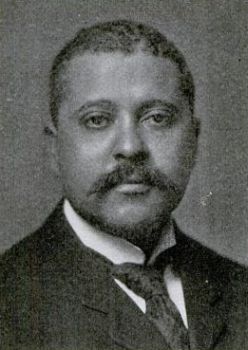Charles William Anderson facts for kids
Charles William Anderson (born April 28, 1866 – died January 28, 1938) was an important political leader in the Republican Party. He worked as a government official in New York City, helping to collect money for the government. President Theodore Roosevelt chose him for this job. Roosevelt was known for wanting to appoint African Americans to important positions. He even had dinner with Booker T. Washington at the White House, showing his commitment to this idea.
Contents
Early Life and Political Beginnings
Charles Anderson was born in Oxford, Ohio. As he grew up, he became very interested in politics. He moved to New York City and became a strong organizer for the Republican Party there. This meant he helped gather support and votes for the party.
Working for Presidents
President Theodore Roosevelt appointed Charles Anderson to his first big government job in New York City. He took over from another official named Charles H. Treat. This was a significant appointment because it showed Roosevelt's belief in giving opportunities to African Americans in government.
Later, when Woodrow Wilson became president, Charles Anderson and other African Americans were removed from their government jobs. This was a challenging time for many. However, when Warren G. Harding became president, he appointed Charles Anderson to another important government role.
In January 1908, President Roosevelt even sent Charles Anderson a special note. He thanked Anderson for a good speech he had given, showing how much Roosevelt valued his work and support.
Personal Life and Legacy
Charles Anderson married a woman named Emma Lee Bonaparte. Besides his political work, he was involved in many official ceremonies. He was also a member of several important cultural groups in New York City.
Charles William Anderson passed away on January 28, 1938. He died at his home in Harlem, New York, from pneumonia. He is remembered as a dedicated political organizer and a significant figure in African American politics during his time.
See also
- William Demosthenes Crum, another African American official appointed by President Roosevelt.
- Minnie M. Cox, a postmaster whom President Roosevelt supported during a difficult time.


